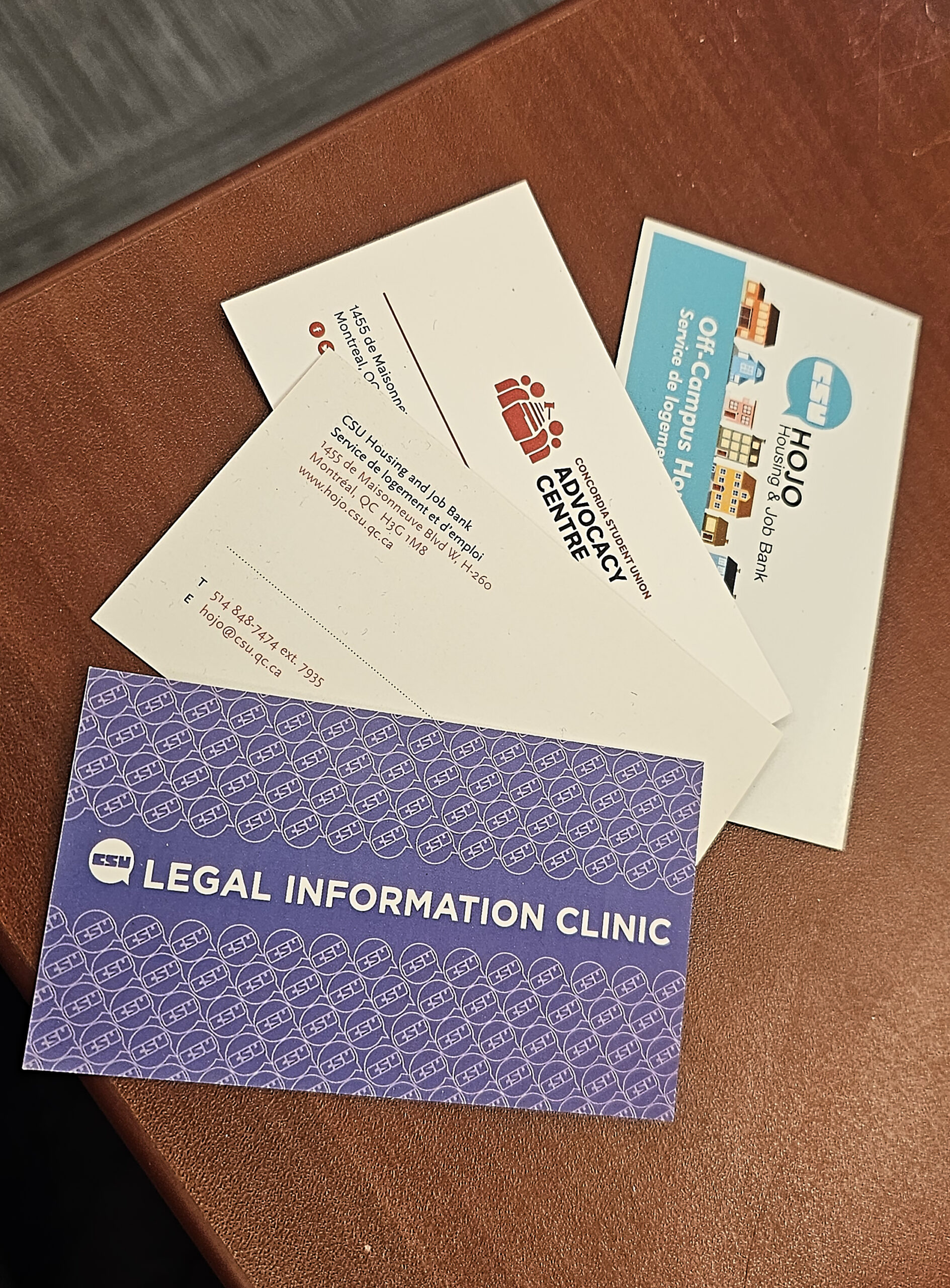As graduate students prepare to vote in upcoming elections, questions remain about the LIC’s accessibility.
The Concordia Student Union’s (CSU) Legal Information Clinic (LIC) was informed today of the Graduate Students Association’s (GSA) proposed referendum to eliminate the clinic’s fee levy of $2.75.
The LIC said in an email that the announcement comes at a frustrating time, especially when the CSU recently stated that they’re reviewing their initial decision to remove the clinic. Now, the CSU is reviewing the LIC’s services “in accordance with the resolution adopted, which was to keep the LIC open, by the CSU Student Council on Feb. 14,” as said in an email. The CSU’s final decision is still pending.
The LIC was not made aware of the GSA’s proposal prior to the announcement. If the referendum passes, the current graduate students who use the LIC services for their needs will no longer be able to, affecting the future of the clinic and the graduate students who need it.
Fo Niemi, executive director of the Centre for Research-Action on Race Relations (CRARR), is currently working with two graduate students who need representation for their respective cases. He told The Concordian that preventing graduate students’ access to legal services will affect student protection and guidance during their legal issues and processes.
“If the GSA cuts off funding to the Legal Information Clinic, that means that the clinic cannot fund for the legal representation. If they go on their own to defend against these charges, it could be a very difficult experience for them,” Niemi said.
Niemi believes that fee levies are a “major source of financial support for graduate students who need legal representation.” Since many graduate students are international, they need the LIC’s help with immigration, cases involving racism or sexual assault, and employment, among others.
Even language barriers can cause difficulties to some graduate students as they undergo the judicial process during their case. Niemi feels that by keeping the LIC open, these graduate students will be able to access services that respect their language barriers, something that other legal services on university campuses may not provide.
“Once the graduate students access Quebec common agencies in charge of human rights—especially if your French is not good and you go there as an English speaker—you may need more than just lawyers and may need a lot of other support that the Legal Information Clinic can provide,” Niemi said. “That’s a very valuable and important support for these students.”
The LIC is urging graduate students to vote on the matter during the GSA elections on April 15 and 16.
